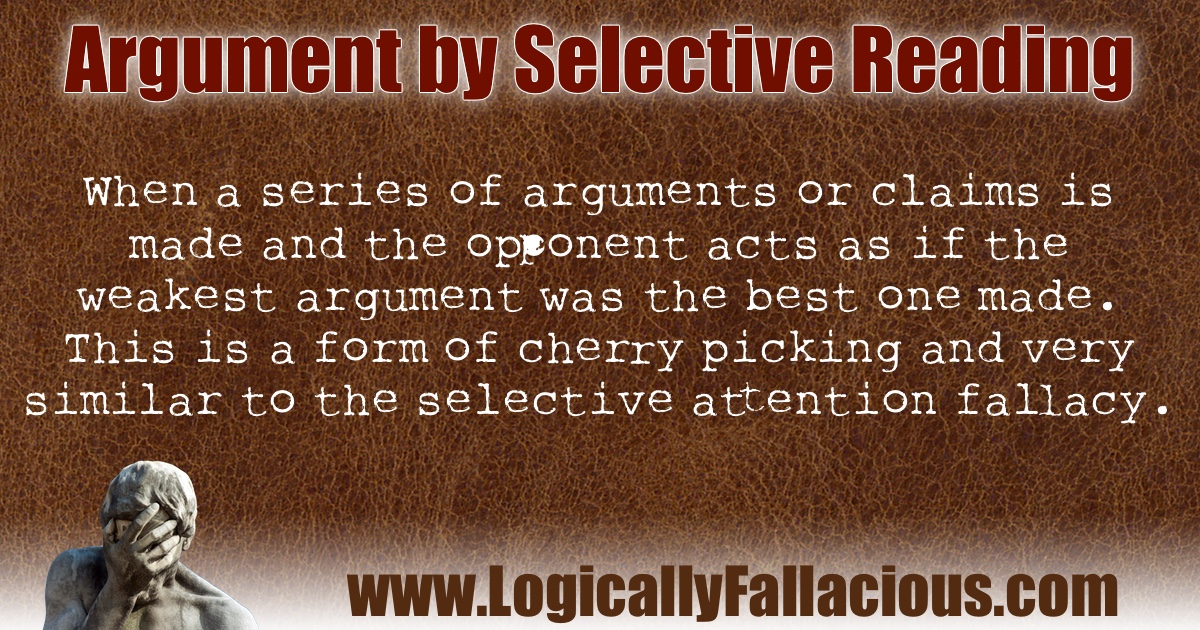Argument by Selective Reading
Description: When a series of arguments or claims is made and the opponent acts as if the weakest argument was the best one made. This is a form of cherry picking and very similar to the selective attention fallacy.
Logical Form:
Person 1 makes arguments X, Y, and Z.
Argument Z is the weakest.
Person 2 responds as if argument Z was the best person 1 has made.
Example #1:
Kevin: I think there is good evidence that God exists because of the fine-tuning argument, the teleological argument, and perhaps because over 2 billion believe it as well.
Sydney: It is ridiculous to believe in God just because a lot of other people do too!
Explanation: Kevin gave three reasons for his belief in God, two are worthy of debate, and one is not. Sydney focused on the one that is not and responded as if that were the only one he made.
Example #2:
Jona: Yes, man did walk on the moon. There is overwhelming evidence that does not come from either NASA or the United States government. Besides, I personally know one of the astronauts involved in one of the Apollo missions, and he confirms that they really did send men to the moon.
Biff: Your friend is just being paid to perpetuate the lie.
Explanation: Biff focused on the weaker of the two arguments and ignored the other.
Exception: One can start by dismissing the weakest arguments first, as long as they get to the strongest one.
Tip: If your interlocutor begins rattling off several arguments, politely interrupt them and request that they begin with their strongest argument, and allow you to address that one before proceeding to the next argument.

References:
This a logical fallacy frequently used on the Internet. No academic sources could be found.
Questions about this fallacy? Ask our community!